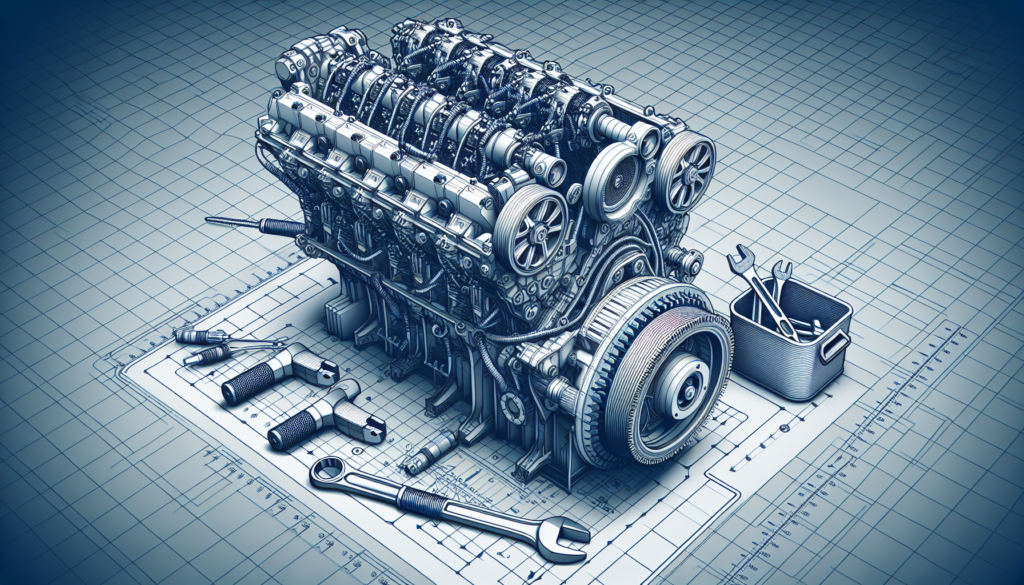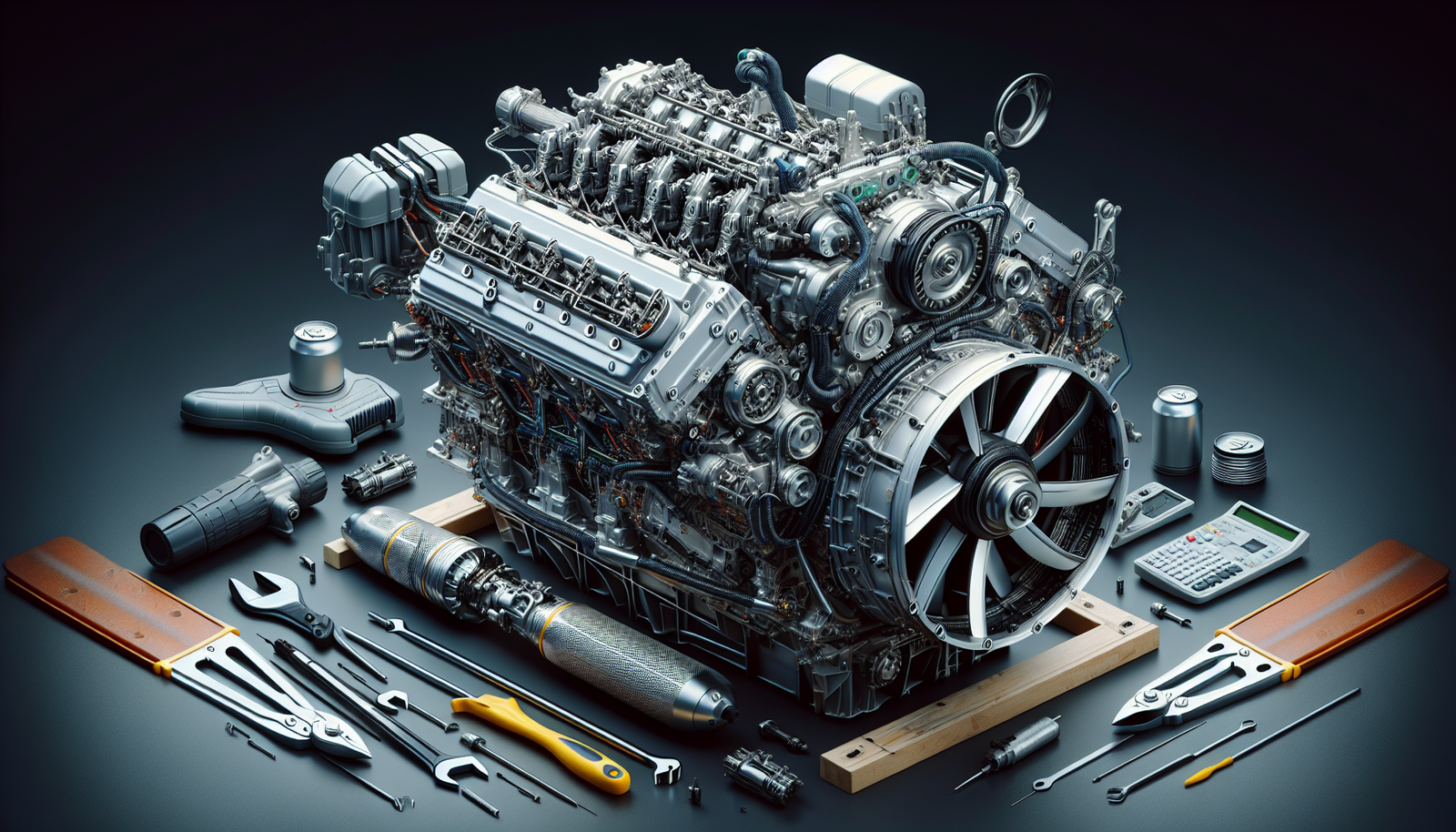Being out on the open water is always an amazing experience, but having the peace interrupted by boat engine overheating issues can be worrying. “Troubleshooting Boat Engine Overheating Issues” is here to help. This article takes on the daunting task of guiding you through simple ways to troubleshoot common overheating problems. By the end of it, you’ll have the knowledge you need to identify, understand, and possibly fix overheating problems in your boat’s engine. So, don’t let a drop in engine performance ruin your day on the water ever again.
Understanding Overheating in Boat Engines
In order to mitigate any issues connected with your boat engine, you first need to understand what overheating is and why it is a problem.
What is Engine Overheating?
Engine overheating in boats involves your engine superheating and running at higher temperatures than which it is designed for. This can quickly damage the internal components and lead to a catastrophic engine failure.
Why is Overheating a Serious Issue?
Overheating should never be taken lightly because if not addressed promptly, it can lead to major mechanical issues. The heat from an overheated engine can cause severe damage, including melting parts of the internal system, cracking the engine head or block, and ultimately leading to costly repairs or the need for an engine replacement.
What are Signs of Overheating?
As a boat owner, you should be aware of signs that might indicate your engine is overheating. These can include symptoms such as steam or smoke appearing from the engine compartment, a spike in temperature readings, loss of power, and a noticeable drop in engine performance.
Recalling the Basics of Boat Engine Cooling System
An adequately functioning cooling system is crucial to avoid overheating problems. Let’s revisit some of the basics.
How Does a Boat’s Cooling System Work?
The Cooling system in a boat’s engine works by distributing coolant through the engine, absorbing the generated heat, and then dissipating it out into the environment, keeping the engine temperature within acceptable limits.
Importance of a Functional Cooling System
The cooling system plays a pivotal role in ensuring the engine does not overheat and continue to function optimally. Without an effective cooling system, the engine parts can overheat, warp and sustain substantial damage.
Components of Boat Engine’s Cooling System
Key components of the engine’s cooling system include the coolant, thermostat, raw water pump, heat exchanger, and sea strainer. Each has a specific function and is necessary for the system to work efficiently.

Diagnostic Measures for Overheating
If you suspect your engine is overheating, certain diagnostic measures can help ascertain the problem.
Reading the Temperature Gauge
Your Boat’s temperature gauge provides an immediate, visible sign of your engine’s heat levels. A sudden increase in the gauge reading is a clear indication of overheating.
Identifying Possible Symptoms
As mentioned earlier, signs like smoke, steam, or a decrease in performance are symptoms of overheating. Make sure to keep an eye out for these warning signs.
Making Preliminary Inquiries
Knowing your boat and how it operates under normal conditions is the first step to spotting trouble. Ask yourself questions, such as: Has the engine been running hotter than usual? Has there been an increase in exhaust smoke?
Common Causes of Overheating
There are several reasons why your engine might be overheating. Understanding these can help in troubleshooting the problem.
Inadequate Water Flow
One of the primary reasons for engine overheating is inadequate water flow. This can be due to a clogged intake or a failing water pump, restricting the water circulation needed to cool the engine.
Blockage in the System
A clog anywhere in the cooling system can lead to overheating. This could be in the hoses, heat exchanger, or seacock, any of which would impede the coolant flow.
Faulty Thermostat
The thermostat regulates the coolant flow into the engine. If it’s faulty, it could cause the engine to overheat.
Damaged Heat Exchanger
The heat exchanger helps remove heat from the coolant before it re-enters the engine. Any damage to it can inhibit this process, leading to overheating.
Insufficient Coolant
Low levels or poor quality of coolant can’t absorb the engine’s heat as effectively, causing it to run hot.
Excessive Load on Engine
Overloading your boat or running your engine at high revs for extended periods may overwork the engine and generate excessive heat.
Problems with Raw Water Pump
A failing raw water pump can’t circulate enough cooling water, causing your engine to heat up.

Inspecting Components of the Cooling System
If your engine is overheating, you should thoroughly inspect the cooling system components.
Inspecting the Coolant
Check the coolant levels and its overall condition. Ensure it’s the right type for your engine and hasn’t degraded over time.
Exploring the Thermostat
Inspect the thermostat for any signs of damage or sticking. If it’s malfunctioning, it will need replacement.
Checking the Raw Water Pump
Look for any leaks or weakened flow from the pumped water. If noticed, you’ll need to repair or replace the pump.
Examining the Heat Exchanger
Inspect the heat exchanger for any possible damage or blockage.
Cleaning out the Sea Strainer
Finally, clear out any debris from the sea strainer which might be impeding the water flow.
Repair and Replacement Solutions
Once you’ve identified the issue, it’s time to repair or replace the faulty components.
Replacing a Faulty Thermostat
A Faulty thermostat can easily be replaced with a new one.
Repairing or Replacing Raw Water Pump
If the water pump is failing, it’ll need to be serviced or replaced.
Replacing Restricted Sea Water Hoses
Damaged sea water hoses can restrict the cooling water flow. They should be replaced promptly if identified.
Dealing with Damaged Heat Exchanger
In case of any damages to the heat exchanger, you should consult a mechanic for repair or replacement.
Regular Maintenance to Prevent Overheating
Catch overheating issues in the bud by taking preventative measures and maintaining your engine properly.
Maintaining the Cooling System
Regularly check and make sure your cooling system is functioning optimally, ensuring there’s no overheating.
Regular Inspection and Cleaning
Inspect and clean all components of the cooling system regularly to mitigate the risk of clogs and blockages.
Preventing Possible Blockages
Regularly inspect your sea strainer, intake grates, and cooling passages for debris or growth that can lead to blockages.
Using Recommended Engine Coolant
Always use the recommended coolant for your engine type and keep it at the appropriate level.
Preventing Overheating in Hot Weather
During hot weather, pay extra attention to your engine’s temperature. Lighten the load, keep the engine revs down, and ensure the cooling system is fully functional.
Professional Help for Overheating
While it’s good to troubleshoot and fix minor issues yourself, some issues require professional help.
When to Seek Professional Help
Severe or recurring overheating issues should be addressed by a professional, as these signify a deeper problem that might be beyond your ability to fix.
Choosing a Qualified Marine Mechanic
Choose a trustworthy and experienced marine mechanic who can diagnose and fix your engine issues reliably.
Understanding what the Diagnosis Means
Ensure you understand the diagnosis provided by the professional and follow their instructions for any repairs or replacements.
Overheating Troubleshooting Tools
For troubleshooting overheating issues, some tools can come in handy.
Thermometer or Temperature Gauge
Essential to monitor your engine’s temperature and its potential rise.
Infrared Thermometer
Good for checking individual parts of the cooling system for hotspots.
Special Testing Kits
Helpful for checking the coolant’s condition.
Common Misconceptions about Overheating
Understanding some common myths can help prevent unnecessary damage to your engine due to overheating.
Overheating is Normal during Summers
While engines might run a bit hotter in the warmer weather, severe overheating is NOT normal and should be addressed.
Running the Engine on Idle Cools it Down
In fact, idling may exacerbate overheating since the cooling system operates less efficiently at low speeds.
Driving Faster Can Lower Engine Temperature
Trying to cool your engine quicker by increasing the speed can actually put more stress on the engine and make it hotter.
Lack of Smoke Means the Engine is Not Overheating
Smoke isn’t the only sign of overheating. You could be experiencing overheating without any smoke; hence it’s crucial to keep watching your temperature gauge.

